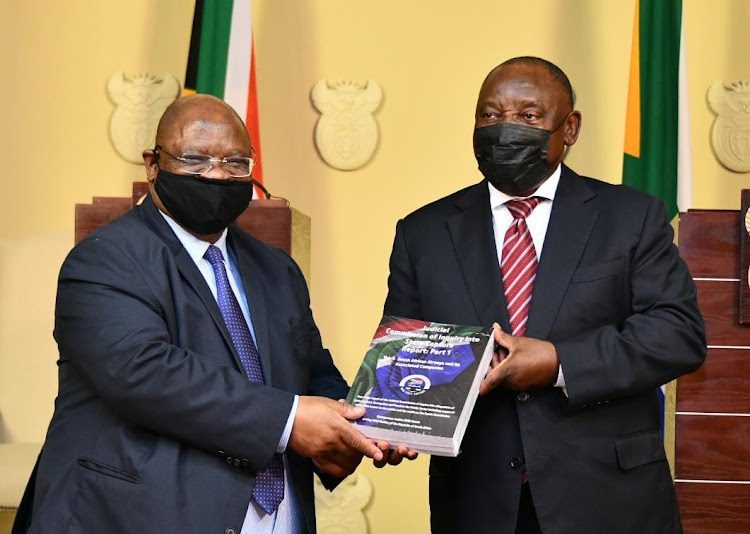The team that probed high-level corruption in South Africa has called for the establishment of an independent anti-graft body as the government cannot be trusted with the “ultimate responsibility” to lead the fight against corruption.
According to Part 1 of a three-part report that emerged out of nearly four years of investigations by the Commission of Inquiry into State Capture, which was presented to President Cyril Ramaphosa on Tuesday, commission chairperson Raymond Zondo said South Africans have lost faith in the ability of the government to rein in corruption.
“South Africa requires an anti-corruption body free from political oversight and able to combat corruption with fresh and concentrated energy,” said Zondo who is also South Africa’s acting chief justice.
He added: “Public trust will not otherwise be re-established in the procurement system. What is required are specialised oversight and monitoring authorities which operate upon the basis that they are independent in the full and untrammelled sense, ie. that they are subject only to the constitution and the law.”
He noted that this would imply that “the choice of officials who will lead and staff such bodies is not left in the discretion of government.”
“Such appointments must be in accordance with a transparent procedure in a public process,” Zondo said.
The appropriate starting point for any scheme of reform should include the establishment of a single, multifunctional, properly resourced and independent anti-corruption authority with a mandate to confront the abuses inherent in the present system, he said.
The judge said South Africans have endured “twenty years of frustration” at the hands of political and economic criminals who have taken advantage of loopholes in the country’s public procurement system, resulting in “lasting damage on the South African economy.”
The commission was established in early 2018 to probe allegations of corruption and undue external influence on government processes by businesspeople connected to then president Jacob Zuma.
Some 1,438 persons and entities were implicated by evidence led before the commission, Zondo said.
JN/APA


